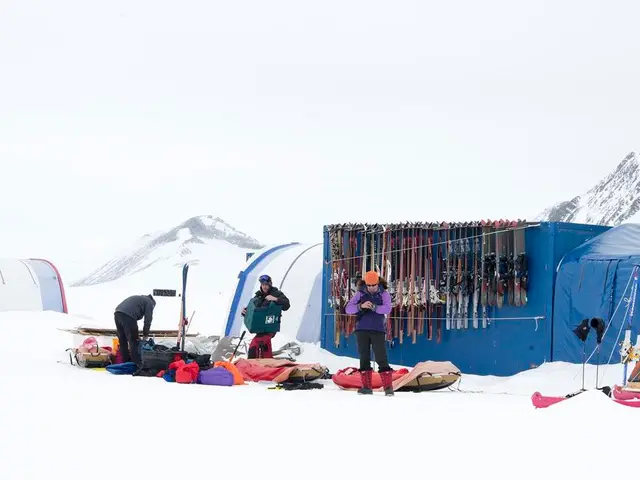Iraq maintains defensive partnership with Iran on borders, disregarding US objections
Iraq and Iran Sign Joint Security Pact in Baghdad
Iraq and Iran have recently signed a security pact in Baghdad, focusing on border security and coordination to prevent destabilization from third-party actors. The deal emphasizes mutual commitments to avoid using each other's territory for hostile actions and aims to enhance regional stability [1][2].
The agreement builds on a previous deal from March 2023, which aimed to enhance security in Iraq's Kurdish region. Iraqi Prime Minister Mohammed Shia Al-Sudani presented the pact as part of broader cooperation to secure both countries' frontiers and promote regional stability [2][3].
The security pact does not imply Iraq's subordination to Iran's policies, as Iraq maintains its right to independently conclude agreements. The Iraqi Embassy in Washington reiterated Iraq's right to independently conclude agreements [4].
The Iraq-Iran security pact symbolizes growing Iranian influence, challenging Iraq’s position as it tries to maintain good relations with the United States amid American military drawdown and persistent regional volatility [1][3][4][5]. The U.S. has criticized the agreement as inconsistent with its strategic goals, particularly due to the influence of Iran-linked armed groups in Iraq and the contentious role of the Popular Mobilization Forces (PMF) [3].
Washington has been pressuring Baghdad to disarm these militias and reduce ties with Iran after attacks linked to Iran-backed groups [3]. Meanwhile, Iraq is navigating a delicate balance between maintaining security cooperation with Iran and preserving its strategic partnership with the U.S. The United States is concurrently transitioning its military mission in Iraq from a multinational coalition to a traditional bilateral security partnership, with a phased withdrawal of forces scheduled through 2025 and 2026 [4][5].
Iran accuses Iraq's Kurdish region of harboring armed opposition groups, and the security pact aims to tighten coordination along the shared border of the two countries [6]. However, Iraqi officials stress that the agreement is not intended to provoke the United States or undermine Iraq’s other international partnerships [2][3].
The new security agreement aims to strengthen coordination along the shared border of Iraq and Iran, with the Iraqi government emphasizing that the pact does not infringe upon Iraq's constitutional and national laws [7]. The deal was reached during the visit of Iranian top security official Ali Larijani [8].
Read also:
- Discussion between Putin and Trump in Alaska could potentially overshadow Ukraine's concerns
- Massive 8.8 earthquake hits off the coast of Russia's Kamchatka Peninsula, prompting Japan to issue a tsunami alert.
- Court petitions to reverse established decision on same-sex marriage legalization
- Independence supporters in New Caledonia refuse agreement offering authority without a vote on sovereignty








